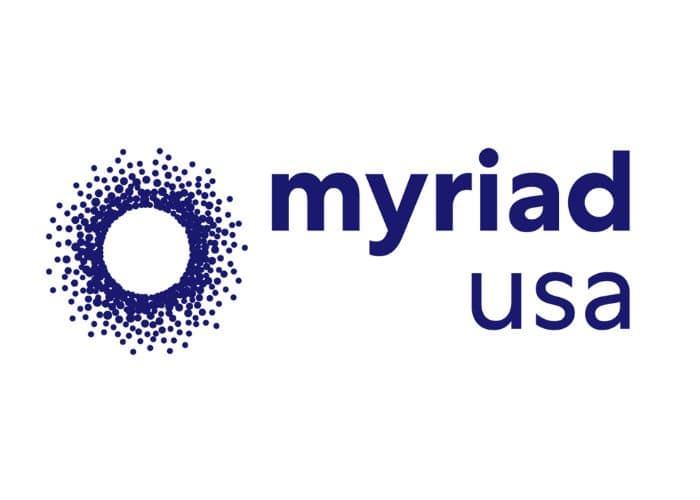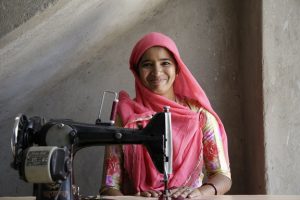- About AVPN
-
-
-
About AVPN
Who We Are
We are a leading ecosystem builder that is increasing the flow of financial, human, and intellectual capital from Asia and around the world into the social sector in Asia. We provide a network of peers, rigorous learning programmes, and innovative capital mobilization opportunities that make sure resources are more effectively deployed.
-
-
-
- Members
-
-
-
Membership Benefits
Unrestricted access to AVPN research reports and case studies
Access market-specific snapshots and opportunities
Increased visibility for events, programs and insights via AVPN website, blog, newsletters and social media channels
Leverage the AVPN platform to bring under-represented social issues top of mind for more than 600 social investors
-
-
-
- Resources
-
-
-
Resources
Highlights of the week
Trust-Based Philanthropy
In the face of increasingly complex and, sometimes rapidly, changing needs on the ground, it is crucial to take a step back and reconsider the status quo.
APAC Sustainability Seed Fund 2.0
By leveraging the success of the first round of the APAC Sustainability Seed Fund, AVPN continues to mobilise continuum of capital into supporting climate solutions in the region.
Faith and Giving
Faith, and the values, belief systems, moral codes, and religious doctrines, that underlie it, shape much of philanthropy across the world. From addressing needs in underserved communities to investing in sustainable energy solutions, faith-aligned givers are demonstrating that compassion can be a catalyst for a more just and equitable world. However, the fundamental drivers of faith-aligned giving often remain unexamined.
-
-
-
- Markets
-
-
-
Markets
We are a leading ecosystem builder that is increasing the flow of financial, human, and intellectual capital from Asia and around the world into the social sector in Asia. We provide a network of peers, rigorous learning programmes, and innovative capital mobilization opportunities that make sure resources are more effectively deployed.
Explore Markets
-
-
-
- Impact Communities
-
-
-
Impact Communities
-
-
-
- Capital Mobilisation
-
-
-
Capital Mobilisation
Featured Deals
Socio-Economic Empowerment of Women
Climate Action and Environment, Education, Financial Inclusion, Gender, Livelihood and Poverty Alleviation
Solve Education: Education through Innovative Learning Platform
Education, Employability, Livelihood and Poverty Alleviation
Lotus Petal Sr. Sec School, Gurugram
Education, Employability, Health
IT Training Against Poverty in Cebu
Education, Employability, Livelihood and Poverty Alleviation
IT Vocational Training Against Poverty
Education, Employability, Livelihood and Poverty Alleviation
Gigatonne: Addressing Problems within the Carbon Credits Market
Climate Action and Environment, Financial Inclusion, Gender, Livelihood and Poverty Alleviation
-
-
-
- Events
-
-
-
Events
Upcoming Events
UN Global Compact 2024 Climate Ambition Accelerator Final Registration
30 April 2024
Restoring Equilibrium: SVCA 2024 Annual Conference – Seeking Balance in A Turbulent World
16 May 2024
-
-
-
Livelihood for Women with HIV
Creates a care and support centre for women and children living with HIV/AIDS in India to receive treatment in a stigma-free environment.
By
India HIV/AIDS Alliance
Click here to learn more about the Impact Organisation
This is member exclusive
content. Click here to unlock
Social causes
Beneficiaries
SDGs covered
Endorsed by
Market of Implementation
- India
Problem
Those who live with HIV/AIDS already face numerous challenges, but there are often additional layers of challenges for women and children living with HIV/AIDS in India. Knowing that one has HIV is the first step towards receiving treatment, but in some homes the women and children have not yet learned that they are HIV-positive: a study by Alliance India discovered only 15% of the men who have registered with the Government's AIDS Control Programme have disclosed their status to family members. Helping women and children identify their status is a crucial first step, but next they will face stigmas and socio-economic hurdles as they seek treatment. In a patriarchal society, HIV positivity can be unfairly associated with a woman's character, though she might have only been exposed to HIV through her husband. Alliance India has also found that at hospitals, HIV-positive patients have been purposely given improper diagnoses to avoid the duty of performing surgeries on these "risky" patients. Also, the long wait times at existing health care centers can require taking a full-day off from work or school to receive treatment. This is problematic not just because of lost work wages or missed school days, but also because they risk stigmatization if it becomes necessary to tell an employer or teacher the reason for these recurring absences. These factors provide women and children with a dangerous incentive to avoid seeking treatment. For some they will not seek help until the condition has reached a very late stage, if they decide to pursue any treatment at all.
Solution
This project will allow the India HIV/AIDS Alliance to create a Care and Support Center (CSC), which will cater exclusively to the needs of women and children living with HIV/AIDS. This will provide them with a stigma-free environment to receive timely treatment from a staff that is sensitized to meet their needs. It is expected that approximately 4,000 women living with HIV/AIDS and 1,200 of their children will have access to services through this center. This project will fund the CSC's activities for a full year, as it provides the following essential services: 1) Counseling Services: Women and children will be able to meet with a trained counselor and receive guidance on treatment adherence, positive living and prevention, reproductive health, nutrition and health counseling, as well as counseling for families and adolescents. 2) Advocacy Services: The CSC will work to strengthen referral linkages to ensure that there are no gaps in the holistic care of the women and children in its charge. These activities will include: HIV/AIDS Sensitization Trainings for health care providers in Delhi, helping women and children access social welfare schemes and government services, connecting with legal services providers such as DALSA (District Legal Service Authority) and SALSA (State Legal Service Authority) to secure free legal aid to clients in need, as well as focus group discussions and participation in village committee meetings to better understand the community's needs. 3) Creating an Enabling Environment: The CSC will form "Mothers' Clubs" among women, and "Buddy Groups" among children to facilitate a support system within the community. Leaders will be identified and trained to become community spokespeople to advocate within and outside their community. Visitors to the Center may also receive vocational training, and participate in a job fair to link needy women living with HIV to prospective employers. 4) Assessment of Women and Children with Special Needs: Within 6 months of the project's start, the CSC will complete an assessment to determine the number of number of women and children who might have special needs (examples could be sex workers, I.V. drug users, widows, and women whose children live in care homes). The assessment will provide an estimated number of special needs cases, their risk practices, and their service needs.

















 This project will allow the India HIV/AIDS Alliance to create a Care and Support Center (CSC), which will cater exclusively to the needs of women and children living with HIV/AIDS. This will provide them with a stigma-free environment to receive timely treatment from a staff that is sensitized to meet their needs. It is expected that approximately 4,000 women living with HIV/AIDS and 1,200 of their children will have access to services through this center. This project will fund the CSC's activities for a full year, as it provides the following essential services:
1) Counseling Services: Women and children will be able to meet with a trained counselor and receive guidance on treatment adherence, positive living and prevention, reproductive health, nutrition and health counseling, as well as counseling for families and adolescents.
2) Advocacy Services: The CSC will work to strengthen referral linkages to ensure that there are no gaps in the holistic care of the women and children in its charge. These activities will include: HIV/AIDS Sensitization Trainings for health care providers in Delhi, helping women and children access social welfare schemes and government services, connecting with legal services providers such as DALSA (District Legal Service Authority) and SALSA (State Legal Service Authority) to secure free legal aid to clients in need, as well as focus group discussions and participation in village committee meetings to better understand the community's needs.
3) Creating an Enabling Environment: The CSC will form "Mothers' Clubs" among women, and "Buddy Groups" among children to facilitate a support system within the community. Leaders will be identified and trained to become community spokespeople to advocate within and outside their community. Visitors to the Center may also receive vocational training, and participate in a job fair to link needy women living with HIV to prospective employers.
4) Assessment of Women and Children with Special Needs: Within 6 months of the project's start, the CSC will complete an assessment to determine the number of number of women and children who might have special needs (examples could be sex workers, I.V. drug users, widows, and women whose children live in care homes). The assessment will provide an estimated number of special needs cases, their risk practices, and their service needs.
This project will allow the India HIV/AIDS Alliance to create a Care and Support Center (CSC), which will cater exclusively to the needs of women and children living with HIV/AIDS. This will provide them with a stigma-free environment to receive timely treatment from a staff that is sensitized to meet their needs. It is expected that approximately 4,000 women living with HIV/AIDS and 1,200 of their children will have access to services through this center. This project will fund the CSC's activities for a full year, as it provides the following essential services:
1) Counseling Services: Women and children will be able to meet with a trained counselor and receive guidance on treatment adherence, positive living and prevention, reproductive health, nutrition and health counseling, as well as counseling for families and adolescents.
2) Advocacy Services: The CSC will work to strengthen referral linkages to ensure that there are no gaps in the holistic care of the women and children in its charge. These activities will include: HIV/AIDS Sensitization Trainings for health care providers in Delhi, helping women and children access social welfare schemes and government services, connecting with legal services providers such as DALSA (District Legal Service Authority) and SALSA (State Legal Service Authority) to secure free legal aid to clients in need, as well as focus group discussions and participation in village committee meetings to better understand the community's needs.
3) Creating an Enabling Environment: The CSC will form "Mothers' Clubs" among women, and "Buddy Groups" among children to facilitate a support system within the community. Leaders will be identified and trained to become community spokespeople to advocate within and outside their community. Visitors to the Center may also receive vocational training, and participate in a job fair to link needy women living with HIV to prospective employers.
4) Assessment of Women and Children with Special Needs: Within 6 months of the project's start, the CSC will complete an assessment to determine the number of number of women and children who might have special needs (examples could be sex workers, I.V. drug users, widows, and women whose children live in care homes). The assessment will provide an estimated number of special needs cases, their risk practices, and their service needs.